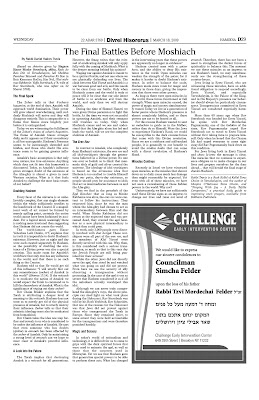The founders recognize a need for a new voice to address the pressing issues of the day in yeshiva and nonpublic school education. Those issues include the health, safety and welfare of all children, the spiraling cost of religious and nonpublic school education, and the quality of education.
We are both a think tank and activist organization. Among our initial accomplishments, when we were known as the N.Y.S. Yeshiva Parents Association, was our successful advocacy for a new law authorizing all nonpublic schools to fingerprint and background check their prospective employees. Our schools can now avoid hiring convicted sex offenders and other dangerous persons who should not be working near children. This law became effective July 1, 2007.
Our activities include multi-disciplinary conferences, attended by professionals, community leaders, and all interested persons who possess a fervent wish to make a better world for our children. We seek practical solutions to contemporary challenges.
Our Officers and Executive Committee members are comprised of individuals with strong backgrounds in law, medicine, mental health, education, parenting and mentoring, and the Jewish religion.


 There are, however, a minority of Charedi Jews that can benefit and therefore should study these issues. It is simply not for everyone.
There are, however, a minority of Charedi Jews that can benefit and therefore should study these issues. It is simply not for everyone.







